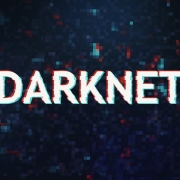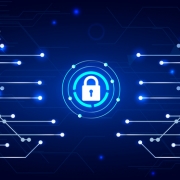The Best Offense is a Good Defense
Introduction
It’s fall, and for most of us, that means one thing: football season! Most Americans love sitting in front of the TV on Sunday to watch their favorite team battle it on the gridiron. The touchdowns, the field goals, the interceptions, the big hits. It’s fascinating.
While watching the game, consider how it compares to your cybersecurity strategy.
Now we know what you’re thinking. So how do you tie together football with cybersecurity? Well, it’s not as hard as you might think.
The best offense is a good defense
A wise, unknown speaker once said, “The best offense is a good defense.” As unlikely as it may seem, this adage applies to football and cybersecurity.
You need a strong defense in football to keep the other team out of your endzone. You need a strong defense to keep cybercriminals from getting into your network. Finally, you need the strongest protection possible to protect your data.
Football teams and cybercriminals both use deception
Think of the ball as malware and the offensive players as cybercriminals. Then, more connections appear between the two. For example, teams use a “play action” strategy. This is where the quarterback pretends to hand off the ball, only to pull it away at the last second and pass.
This is like the cybercriminal strategy of phishing. Criminals use fake, authentic-looking emails to trick their victims. Once users open attachments or click infected links, they’re compromised.
Both strategies use deception.
Understanding how to not fall for a phishing attempt
In football, the defense watches the offensive linemen to determine whether a play is a run or a pass in disguise. In the same way, there are things you can look for in a suspicious email to figure out whether it’s real or not. It’s called the SLAM Method.
SLAM stands for:
Sender
Links
Attachments
Message
SLAM in action
- Check the sender when you come across a suspicious email. Next, make sure the address the email is coming from is correct and doesn’t have any spelling errors. If anything is off, then it is bogus.
- Hover over links in the email to see where they are taking you. If what shows up doesn’t match the name in the link, do not click on it.
- Never open attachments from unknown or unexpected emails. They could contain dangerous malware that can infect your device. Even if it is from someone you know, double-check with the sender through other means if anything looks off.
- Check the email’s message for spelling/grammar errors or an uncommon sense of urgency.
Conclusion
We don’t expect you to go over your training during the big game. But if you can find a way to connect what you love to what will protect your data, that could be what saves you from a breach.
Need help? Email us at [email protected], visit us at xsolutions.com, or call (845) 362-9675.
Be safe.
XSolutions is an IT Services Provider serving New York (NY), New Jersey (NJ), and Connecticut (CT). We provide Managed IT Services | Managed IT Security | Backup & Disaster Recovery| Cloud Data Protection | Security Awareness Training. Call (845) 362-9675 for a free consultation.











